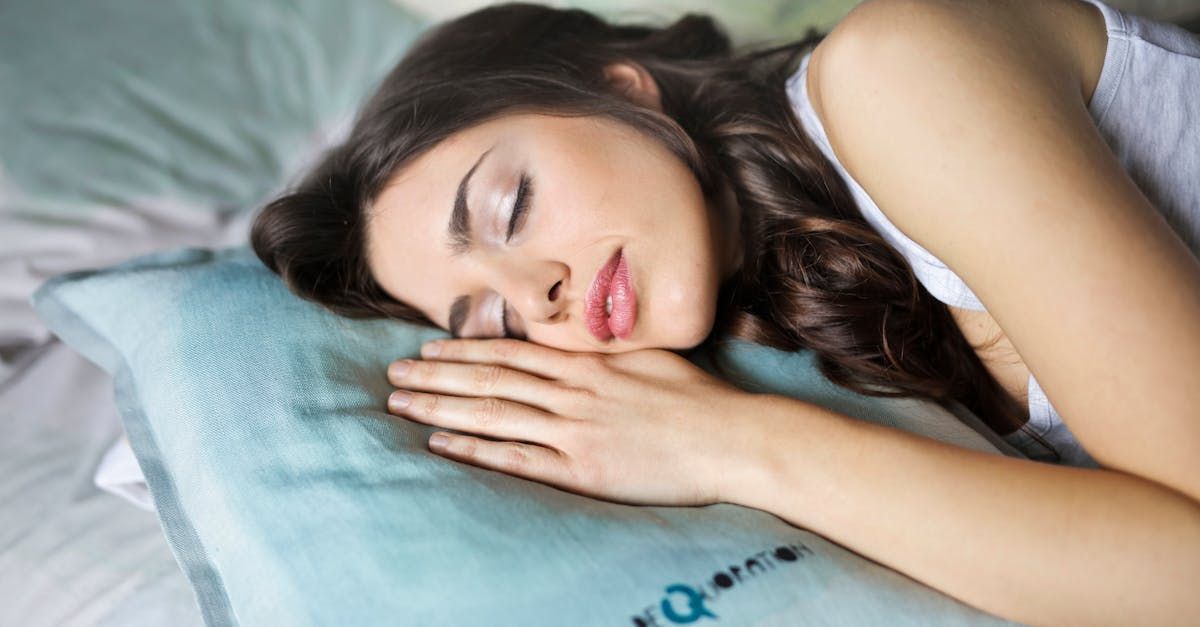The Impact of Sleep on Stress and Anxiety Levels
Tips for Better Rest

Sleep is often considered the cornerstone of good health, influencing everything from physical well-being to mental and emotional stability. Yet, in today’s fast-paced world, quality sleep is often elusive, with many people experiencing chronic sleep deprivation. This lack of sleep can exacerbate stress and anxiety, creating a vicious cycle that can be difficult to break. In this article, we’ll explore the connection between sleep, stress, and anxiety, and offer practical tips for improving your sleep quality to better manage these issues.
The Sleep-Stress-Anxiety Connection
Sleep, stress, and anxiety are intricately linked. When you’re stressed or anxious, it can be difficult to fall asleep or stay asleep. On the other hand, a lack of sleep can increase stress and anxiety levels, making it harder to manage daily challenges.
- How Sleep Affects Stress and Anxiety
- Sleep plays a most important role in regulating mood and emotions. During sleep, the brain processes emotions and memories, helping to consolidate learning and reduce emotional reactivity. When you don’t get enough sleep, the brain’s ability to regulate stress hormones, such as cortisol, is impaired. This can lead to heightened feelings of stress and anxiety, making it harder to cope with life’s challenges.
- The Impact of Stress and Anxiety on Sleep
- Stress and anxiety can significantly disrupt sleep patterns. When you’re stressed, your body’s “fight or flight” response is activated, releasing stress hormones that increase heart rate, blood pressure and alertness, none of which are conducive to falling asleep. Anxiety often leads to racing thoughts and hyper-vigilance, making it difficult to relax and drift off to sleep. Over time, chronic stress and anxiety can lead to insomnia, further perpetuating the cycle of poor sleep and heightened stress.
The Consequences of Poor Sleep
Chronic sleep deprivation can have a range of negative effects on both physical and mental health. Some of the key consequences include:
- Impaired Cognitive Function: Lack of sleep can lead to difficulties with concentration, memory and decision-making. This cognitive impairment can increase stress by making it harder to complete tasks and solve problems effectively.
- Mood Disturbances: Poor sleep is closely linked to mood disorders, including anxiety and depression. When you’re sleep-deprived, you’re more likely to experience irritability, mood swings and a lower tolerance for stress.
- Weakened Immune System: Sleep is essential for maintaining a strong immune system. Chronic sleep deprivation can make you more susceptible to illnesses, which can increase stress levels.
- Physical Health Problems: Long-term sleep deprivation is associated with an increased risk of chronic health conditions, such as heart disease, diabetes and obesity. The stress of managing these health issues can further exacerbate anxiety and stress.
Tips for Better Sleep to Manage Stress and Anxiety
Improving your sleep quality can help break the cycle of stress and anxiety, leading to better overall health and well-being. Here are some practical tips to help you get better rest:
- Establish a Consistent Sleep Schedule
- Going to bed and waking up at the same time every day, even on weekends, helps regulate your body’s internal clock, making it easier to fall asleep and wake up naturally. Consistency reinforces your sleep-wake cycle and can improve the quality of your sleep.
- Create a Relaxing Bedtime Routine
- Develop a calming pre-sleep routine to signal to your body that it’s time to wind down. This could include activities like reading, taking a warm bath, practicing deep breathing or listening to soothing music. Avoid stimulating activities, such as watching TV or using electronic devices, as the blue light emitted can interfere with the production of melatonin, a hormone that regulates sleep.
- Optimize Your Sleep Environment
- Your sleep environment plays a significant role in the quality of your sleep. Ensure your bedroom is conducive to rest by keeping it cool, dark and quiet. Invest in a comfortable mattress and pillows, and use blackout curtains or an eye mask to block out light. Consider using a white noise machine or earplugs to minimize disturbances from outside noise.
- Watch Your Diet
- What you eat and drink can affect your sleep. Avoid large meals, caffeine and alcohol close to bedtime, as they can disrupt your sleep cycle. Caffeine is a stimulant that can keep you awake, while alcohol, although it may initially make you drowsy, can interfere with deep sleep and cause fragmented sleep. Instead, opt for a light snack that includes sleep-promoting nutrients, such as a banana with almond butter or a small bowl of oatmeal.
- Exercise Regularly
- Regular physical activity can help you fall asleep faster and enjoy deeper sleep. Exercise reduces stress hormones and promotes the release of endorphins, which can improve your mood and reduce anxiety. Aim to get at least 30 minutes of moderate exercise most days of the week, but try to avoid vigorous exercise close to bedtime, as it may have the opposite effect and keep you awake.
- Manage Stress and Anxiety During the Day
- Incorporating stress-reduction techniques into your daily routine can improve your sleep. Practice mindfulness, meditation or deep breathing exercises to calm your mind and reduce anxiety. Keeping a journal can also be helpful—write down your worries before bed to clear your mind and prevent racing thoughts from keeping you awake.
- Limit Naps
- While napping can be beneficial, especially if you didn’t get enough sleep the night before, it’s important to keep naps short and early in the day. Long or late naps can interfere with your ability to fall asleep at night. If you need to nap, aim for 20-30 minutes in the early afternoon.
- Consider Professional Help
- If you’ve tried making lifestyle changes and are still struggling with sleep, stress and anxiety, it may be time to seek professional help. Cognitive-behavioral therapy for insomnia (CBT-I) is an effective treatment that can help you change negative thought patterns and behaviors that contribute to sleep problems. A healthcare provider can also assess whether any underlying medical conditions or medications are affecting your sleep.
Sleep is a vital component of managing stress and anxiety. By prioritizing quality sleep and making lifestyle changes to support better rest, you can break the cycle of stress and anxiety and improve your overall well-being. Remember, small changes in your sleep habits can have a significant impact on your mental health. If you’re struggling with sleep, take steps today to create a sleep-friendly environment and adopt healthy sleep practices. Your mind and body will thank you.
Let's connect! I'm here to help.
Send me a message and I'll be in touch.
Agency Contact Form
We will get back to you as soon as possible
Please try again later


